What is AIDS really a disease?
What is AIDS really a disease?
AIDS is a classic preventable and controllable



Infectious disease, the definition of infectious disease is a disease in which pathogenic microorganisms are excreted from the body of a person or an animal and transmitted to susceptible people through certain means of transmission. Infectious diseases must have "three links" that is, the source of infection, transmission, susceptible people. The source of infection of AIDS is patients or carriers of the virus, and there are three ways of transmission.1 Vertical transmission, also known as mother-to-child transmission, is the mother's blood enters the body of the baby in the process of labor and delivery. During the fetal period, due to the placental barrier, AIDS will not be transmitted from the mother to the fetus. 2, blood transmission is contaminated by the patient or the carrier of all direct contact with other people's blood equipment, can be transmitted through the equipment or blood. For example, transfusion of the blood of patients or carriers or contaminated medical equipment such as needles, razor tools used for others. 3, is sexually transmitted Sexual transmission is the main means of transmission of AIDS today, in previous years, sexual transmission is mainly heterosexual transmission, homosexual (mainly refers to the men who have sex with men) less. In recent years the transmission of AIDS is mainly male-to-male transmission, the reason may be related to male-to-male convenience, boldness, hidden, etc.. The so-called susceptible group, all people are generally susceptible to AIDS, and no effective vaccine to protect the susceptible group has yet been researched.
HIV into the body, the main violation of the body's immune system (so also known as immunodeficiency syndrome), resulting in a decline in the body's immunity, not easy to low resistance to all foreign pathogenic microorganisms, and the most likely to appear a series of "infections" and other low resistance to weak diseases, such as diarrhea, on the sense of infection and other infectious diseases.
To prevent AIDS, it is important to follow the three pathways of AIDS, to be clean, not to be sexually promiscuous, to pay attention to personal protection, and not to go to unsterilized and informal medical institutions.
Nowadays, there is good control of AIDS medication, which does not cure the disease but controls its progression.
What is AIDS? I know of two real incidents. Let's start with one of them today about an ordinary person.
The other case, while typical, is more dramatic, and I'll dedicate an article to it later. Since this is a medical specialty, it may not pass muster.
Take a look at the AIDS patient we are talking about today and see how he went from being healthy to getting the disease, and I guess the reader should really understand and know what it is from a layman's point of view.
This patient's experiences are some of the most likely circumstances that the average person is likely to run into, some of the possibilities that may be encountered, reminding us that we must be vigilant and cautious.
Cherish life and stay away from AIDS.

Image not related to content
▼▼
Incident one:
Time: Around 2006
Characters: Young man Z
Age: 26
Little Z works in a second-tier prefecture-level city in the south. His parents opened a small supermarket in a fourth-tier city township 100 kilometers away from him, and his family is well-off. His father is generous and his mother is kind, and his parents have been living with Z's grandparents since they got married, without any conflicts. A few years ago, Z's grandfather passed away, but his grandmother is still alive and well. Every day, she goes to the entrance of the mini-mart to sit on the sun screen and chat with the old neighbors. The family's greatest hope is that Z will get married and have a baby to add to the happiness of the family.
Z is now a large state-owned enterprise technology department, although there is no brilliant future, but the business ability is very strong, the heart also has to do ten or eight years can be raised to a deputy position or other small goals.
The stable and busy working environment makes him also a little depressed, just when their department has an opportunity to go to the provincial capital of another province for training, for his kind of technical personnel, this kind of opportunity is very rare, so he actively applied for this training.
The week of closed training ended quickly, and it was free time after the noon potluck.
Little Z booked a flight for the next morning. The roommate is from the north and booked a 10pm flight.
In the afternoon the two of them paired up to go shopping for some souvenirs and have another local specialty meal (if I name any meal, I guess you'll know what city), and the roommate went back to the hotel to pack up her things.
Little Z let is have his purchases back to the hotel and continued to stay and hang out in the busiest city center.
By accident, he wandered into that famous bar street.
The story that circulates among young people in the city just goes with the flow. A classy and clean looking woman takes Little Z into the abyss of doom.
Woke up the next day, like a dream, small Z actually have a hint of joy: this trip is not false ah.
Back in his own city, thrown into a stressful and tedious job, he quickly forgot about it.
Colleagues' climbing and hiking, classmates' parties, games, novels, so many interesting things are killing spare time, and also had two blind dates, both of which were slapdash and unproductive.
And also on one of those nights when you come back from working late and don't want to schedule anything, when you're lying in the big house that your parents have already put a down payment on and haven't even renovated yet, you'll occasionally think back to the warmth of that night's cuddles.

Image not related to content
▼▼
It happened a few months later, when Little Z went back to his parents' house for the weekend, and his grandmother saw him yelling and asking him if he was sick, and he looked so bad and had lost weight.
Little Z was so proud that the weight loss had worked.
During the meal everyone was telling him to eat more.
It was then that Little Z suddenly realized: he hadn't had much of an appetite for a long time.
Eat breakfast in the morning, sometimes do not eat; eat cafeteria at noon, and at night with colleagues or classmates get-togethers are often alcohol-based, and they often make noodles or do not eat. It's been a long time since I ordered takeout.
He chalked it up to too much big drink lately.
Within a few days after returning from his parents' home, Little Z caught a cold, which was repeated throughout the winter. After going home for a few days in the Spring Festival, his health got a little better. When he returned to the unit, it started again.
Little Z finally got a little scared. He remembers that last year the husband of an older sister on the same floor of the company had liver cancer and was just sickly every day.
So he went to the biggest hospital in the city for a physical.
After the results of the physical examination came back, the more experienced doctors suggested that he take an AIDS test.
He was feeling angry and a little flustered, but did it.
The result made him feel thunderstruck.

Image not related to content
▼▼
I'm not a resident and I don't know anything about how to treat this piece.
Let's just talk about the psychological changes.
One high-risk sex act dragged him from heaven to hell.
It took him seven full years to go from despair to active treatment and back again.
Bone-thin, with paychecks consumed on massive amounts of nourishment.
The family had been pushing for marriage, and the last days of his grandmother's death were spent rambling on about him getting married and having children.
He said something that should best demonstrate his desperation.
"You know what I wish for the most? I wish now more than anything that my parents had died suddenly. That way they wouldn't have to face this outcome. Having them face this humiliation and despair is definitely worse than death."
....
He says he's scared to die now, and he wants to live long enough to give his parents a good send off. Don't let them know about it.
They have a forum, and he said that it's full of regular people with the disease, and that there are a lot more people with the disease than we think.

Image not related to content
▼▼
Little Z has been taking medication and psychological interventions.
In reality no one knew about his illness, only that he suddenly didn't fit in, didn't like drinking and gathering, didn't love the outdoors anymore, and became withdrawn.
Then he suddenly disappeared from my sight.
I have no way to find out what happened to him.
One can only hope that he lives as long as he wishes.
Once again, we call on young people to stay away from high-risk sexual behaviors, cherish themselves and stay away from AIDS.
1. AIDS: Acquired Immunodeficiency Syndrome. It is an infectious disease caused by HIV (Acquired Immunodeficiency Virus) infection.
2. The HIV virus is infected through contact with bodily fluids, and the main means of transmission are through blood, sexual contact, and transmission from HIV-positive mothers to their newborns.
3. After HIV infection, the course of the disease is divided into an acute phase, an asymptomatic phase, and an AIDS phase. The asymptomatic phase is usually 8 to 10 years.
4. Understand the way of HIV infection and avoid risky behaviors that may be infected with HIV. In case of infection, go to a specialized HIV treatment institution for treatment as early as possible, and maintain an optimistic mindset, so that you can have the same life expectancy, ideal career and life.
AIDS is a disease that I'm sure we all know something about, such as its scientific name, how it is transmitted, and the dangers it poses.
What's the deal with AIDS?
1, AIDS, the scientific name is called 'Acquired Immune Deficiency Syndrome', the full name of the English Acquired Immune Deficiency Syndrome, abbreviated as aids, the Chinese direct translation for AIDS. From the literal meaning of understanding, it is a kind of HIV virus attack caused by the body's immune function of the disease. The human immune system is like the defense system of the country, once this immune system collapses, the human body will be directly exposed to infections, and will be attacked by various bacteria and viruses without protection.
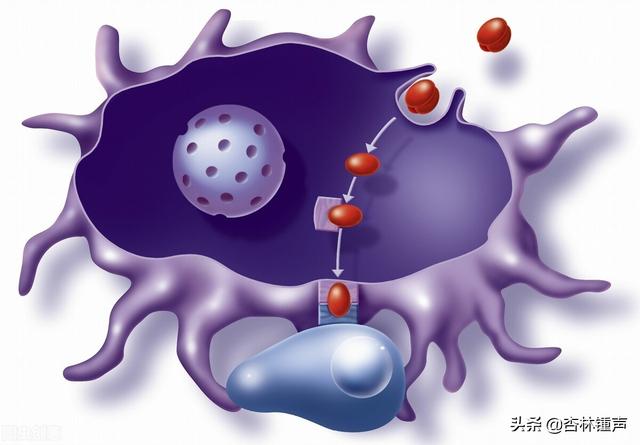
2. There are three main ways of HIV transmission: blood transmission (including intravenous drug use, tattooing, and unregulated medical operations), sexual contact and mother-to-child transmission (including childbirth infection and breast milk transmission). Among them, the most important transmission route is sexual contact, according to the data released by the National Health Commission in 2019, blood transmission and mother-to-child transmission routes are basically under control, and sexual contact is the main transmission route, with heterosexual sexual contact accounting for 73.7% of the transmission, and male homosexual transmission accounting for 23%.
Incubation period and onset of AIDS
1. After the human body is invaded by the HIV virus, it replicates in large quantities in the body and destroys the human body's CD4T cells, leading to the development of the infected person'sHIV viremia and dramatic impairment of the immune systemThe Thus, the emergence ofSkin, neurological and systemic symptoms。

2. The process from initial infection to the end stage of HIV is a long one, including the acute infection period, the asymptomatic period and the AIDS period. The acute infection period is 2-4 weeks, during which HIV rna antigen can be detected, and antibody can usually be detected after 2 weeks. Patients in the acute stage of infection tend to have the following clinical symptoms: sore throat, arthralgia, nausea and vomiting, diarrhea, enlarged lymph nodes, night sweats, and neurological symptoms. After the acute phase there is an asymptomatic period of 6-8 years and finally the AIDS phase, with various opportunistic infections and tumors in the terminal phase.
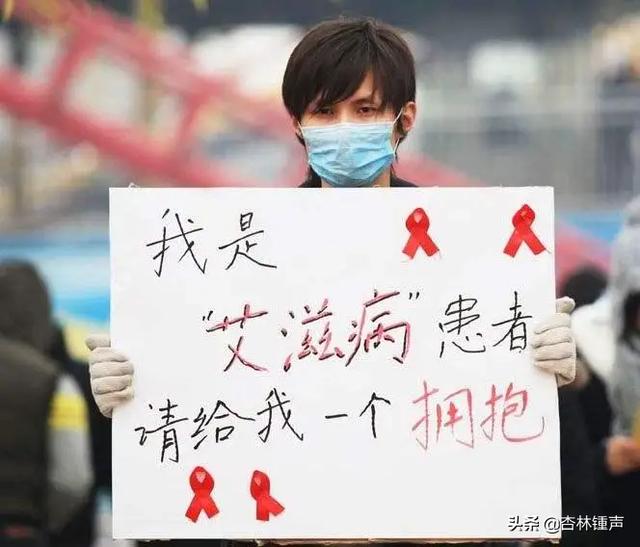
What if I have high-risk sex?
Once found to have high-risk sexual behavior, there is no need to be overly nervous, as long as within 72 hours to take blocking antiviral drugs can achieve more than 95% of the preventive effect, but it should be remembered that it must be taken for 28 consecutive days, in addition to the necessary examination, and actively seek professional medical advice.
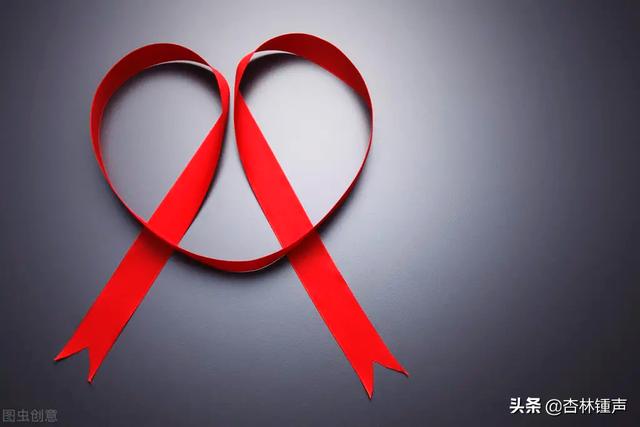
What are the current advances in HIV treatment?
March 4, 2015 - A multinational study by scientists has found that all four known strains of HIV come from chimpanzees and gorillas in Cameroon. In addition to researching the source of HIV, scientists from various countries are also stepping up their efforts to develop HIV treatment drugs, and the drugs that have been developed and marketed for the treatment of HIV are: efavirenz, lamivudine, zidovudine, tenofovir, kleenex, nevirapine, and others. However, different drugs have different side effects, for example, efavirenz is most criticized for insomnia and nightmares plus skin rash, zidovudine for anemia, and tenofovir for bone loss. China has also recently made significant progress in AIDS research and development.2021 On July 21, 2021, the official website of the State Drug Administration showed that the application for the listing of the Class 1 innovative drug azivudine tablets has been approved with conditions.According to the official document, the drug, in combination with nucleoside reverse transcriptase inhibitors as well as non-nucleoside reverse transcriptase inhibitors, can treat adult HIV with a high viral load.From the perspective of the current progress in the development of It is only a matter of time before AIDS is conquered in the future.

Many people are worried that living with AIDS patients will cause infection. In fact, many perceptions are wrong, and we should not discriminate against AIDS patients, instead, we should care more about them. Usually, normal life contact will not cause infection, such as sharing meals, holding hands, sharing toilets, etc.
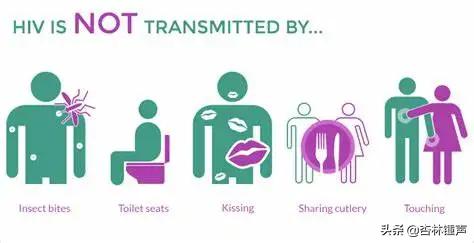
Finally, in order to do a good job of preventing AIDS, in addition to strengthening social publicity and education, we must first of all be clean, cut off the means of transmission is the most effective means of protection, the most important of which is to avoid unclean sexual contact, away from drugs. Guard their own health, but also on the side of family and friends of a responsibility.
Reference: "National Health Commission: China reports 958,000 surviving HIV-infected patients, sexual transmission has become the main means of transmission.
China AIDS Diagnosis and Treatment Guidelines (2018)
For more health knowledge, please follow @杏林锺聲
A little health tip a day for your health!
According to foreign media reports, multinational scientists have found that the four known strains of HIV, all from chimpanzees and gorillas in Cameroon, is the first time that mankind has completely identified all the sources of HIV strains. As a medical problem of AIDS, December 1, World AIDS Day. So, how much do we know about AIDS?
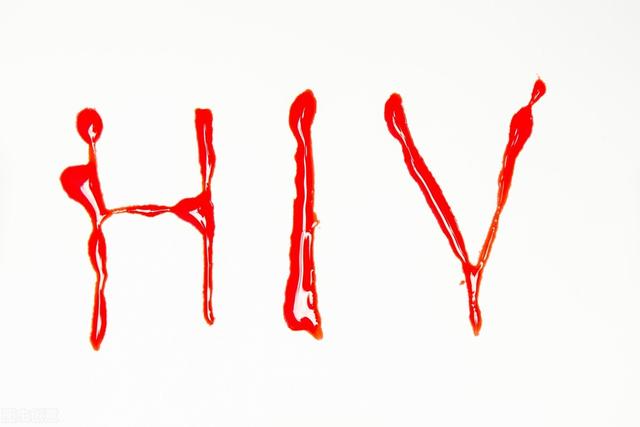
1. AIDS is getting worse and more attention is being paid to it!
WHO reports that in 2010 there were 34 million people living with HIV and AIDS worldwide, with 2.7 million new infections and 1.8 million deaths. More than 7,000 people are newly infected every day, and the epidemic is present in all regions of the world, but more than 97% of them are in middle- and low-income countries, especially in Africa. Experts estimate that the global epidemic may shift from Africa to Asia. China's CDC estimates that by the end of 2011, there were about 780,000 living HIV carriers and AIDS patients in China, with 48,000 new infections and 28,000 deaths throughout the year. The epidemic has covered all provinces, autonomous regions and municipalities directly under the central government, and China is now facing the peak of AIDS morbidity and mortality, which has begun to spread from high-risk groups such as drug users and clandestine prostitutes to the general population.
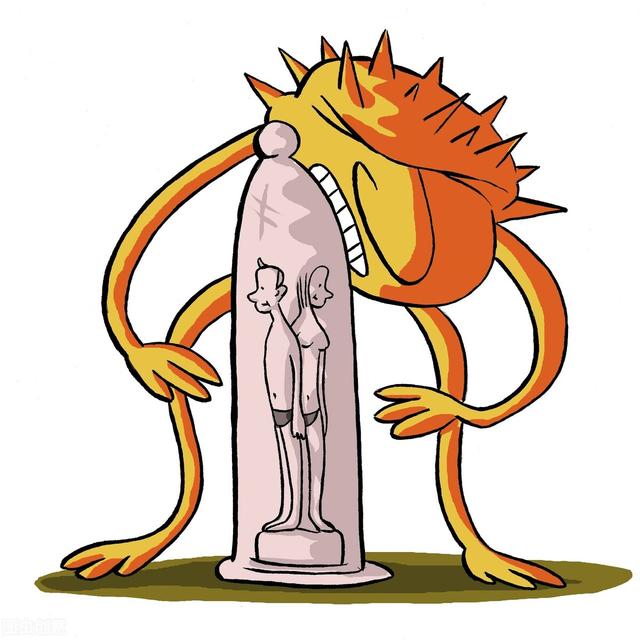
1.1 AIDS as a social challenge
① Harm to the patients themselves: At present, AIDS has become a controllable chronic disease. However, there are still a considerable number of patients who die or become disabled because of untimely diagnosis and treatment, viral drug resistance or side effects of drugs. At the same time, due to social discrimination against infected people, it often brings heavy mental pressure to infected people.
Harm to others: infected people can transmit the virus to others through unprotected sex, multiple partners, sharing of needles and intravenous drug use, and through the mother-to-child route.
(iii) Harm to the family and society: Although China has long implemented the policy of "four exemptions and one care" for HIV-infected patients, the treatment of advanced complications may still bring a heavy economic burden and social problems to the family and society.
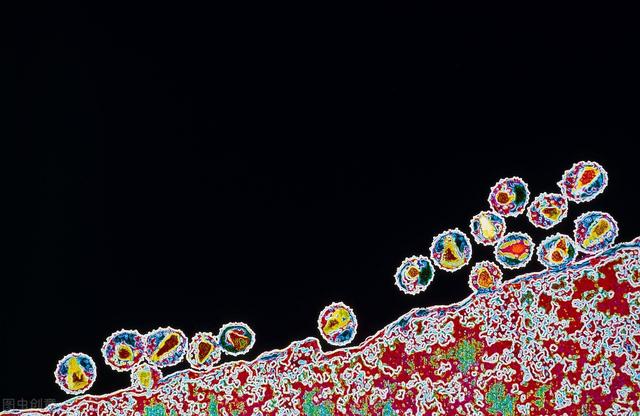
2. General knowledge of AIDS
AIDS, Acquired Immunodeficiency Syndrome (or Acquired Immune Deficiency Syndrome, English: Acquired immunodeficiency syndrome, AIDS, pronounced AIDS).
It is an infection by a reverse transcription virus of the human immunodeficiency virus (HIV), which gradually becomes the target of many opportunistic diseases due to the disruption of the immune system, contributing to a wide range of clinical symptoms collectively referred to as syndromes, rather than just one disease.
3. Who gets AIDS? Who gets AIDS? How do you get AIDS?
AIDS, or the AIDS virus virus HIV, HIV is mainly found in the blood, semen, vaginal secretions, and breast milk of infected people and patients, and can be transmitted through direct contact with mucous membrane tissues (mucosa) of the mouth, genitals, anus, etc., or blood, semen, vaginal secretions, and breast milk with the virus.
① Sexual behavior: unprotected sex with an infected partner, including homosexual, heterosexual and bisexual contact.
② Intravenous drug use: Sharing unsterilized injecting equipment used by an infected person is a very important route of HIV transmission.
③ Mother-to-child transmission: HIV-infected mothers may transmit to their fetuses and infants during pregnancy, labor and breastfeeding.
④ Blood and blood products (including artificial insemination, skin grafts and organ transplants).
Note - Daily life contacts such as shaking hands, hugging, courtesy kissing, eating and drinking together, sharing toilets and bathrooms, sharing offices, public transportation, recreational facilities, etc. do not transmit HIV.
As a result, there is a generalized susceptibility in almost all populations, with high-risk groups including: male homosexuals, intravenous drug users, frequent sexual contact with HIV carriers, frequent transfusion of blood and blood products, and infants born to HIV-infected mothers.

4. Everyone is afraid of AIDS, but AIDS knows you, do you know AIDS? How do you recognize AIDS?
HIV-related symptoms: the main manifestations are fever, night sweats, diarrhea lasting more than one month; weight loss of more than 10%. Some patients show neuropsychiatric symptoms, such as memory loss, apathy, personality change, headache, epilepsy and dementia. Persistent generalized lymph node enlargement may also occur, which is characterized by ①. Enlargement of lymph nodes in two or more areas other than the groin; ②. Lymph node diameter ≥1cm, no pressure pain, no adhesion; ③ duration of more than 3 months.
Common symptoms of HIV-associated opportunistic infections and tumors: fever, night sweats, enlarged lymph nodes, cough, sputum and blood, dyspnea, headache, vomiting, abdominal pain and diarrhea, gastrointestinal bleeding, dysphagia, loss of appetite, oral leukoplakia and ulcers, rashes of all sorts, loss of vision, blindness, dementia, epilepsy, paralysis of the limbs, emaciation, anemia, diarrhea, urinary incontinence, urinary retention, and intestinal obstruction.
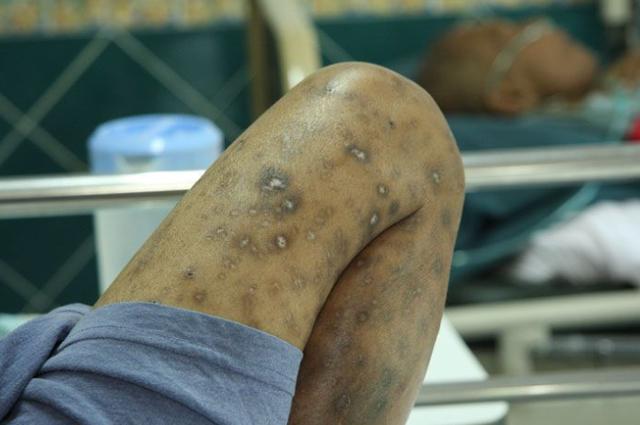
Currently, AIDS is preventable and controllable, although it is still a medical challenge and difficult to cure.
AIDS is a preventable and controllable but incurable infectious disease.
First: preventability and controllability determine the subjective nature of this diseaseThe disease can be eliminated if the population can be cut off from the transmission pathway. From the general direction, as long as the population can be cut off from the transmission pathway, to achieve the open-loop state, then the disease can be completely eliminated. Thinking from the perspective of preventive medicine, the law of transmission of infectious diseases can be summarized as the source of infection (- HIV) transmission pathway, susceptible populations. For the source of infection - HIV, this virus already exists in nature and must be hosted in mammals in order to survive. Therefore, its transmission routes and susceptible populations are the ones from which we can intervene.
(1) For sexual contact transmission, regardless of whether it is homosexual or heterosexual transmission, there is a risk of infection by blood, body fluids, semen and other bodily fluids, sexually active young adults should do to fix a healthy sexual partner, insist on wearing a safe condom, so as to minimize the risk.
(2) In response to blood transmission, ordinary people should not share needles for blood transfusion, not visit clinics without a license to practice medicine or illegal medical practices, and avoid sharing unsterilized medical equipment. Special occupational risk positions must always take self-protection measures and be prepared for precise risk prevention and control.
(3) Mother-to-child transmission is mainly assessed by health care professionals, and it is important not to take unauthorized actions and implicate innocent people.
(4) People who take the above precautions are basically not susceptible.
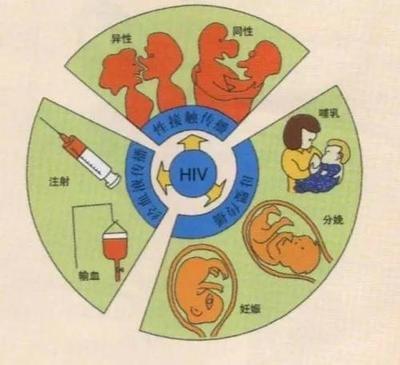
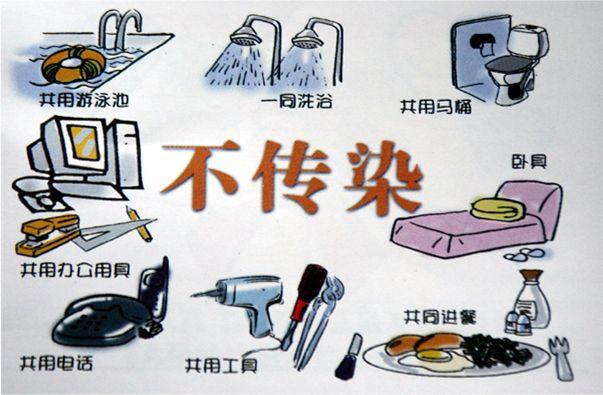
Second: from the perspective of clinical medicine, HIV is impossible to be cured little strongBecause of the limitations of current science and technology. Because of the limitations of current science and technology, the mutability of the HIV virus and many other reasons, medical science has not yet been able to create a drug that completely kills the HIV virus. Often, after a certain incubation period, theWhen the individual's immunity is low, the body's NK cells are unable to patrol the body to clear the body's HIV cells, this time, HIV will seize the opportunity to flourish and expand its strength, resulting in the body's immune defenses step by step collapse, the body's harmful bacteria that had been suppressed to take advantage of the opportunity to join the battlefield of the HIV virus, and together to defeat the body's immune cells.. So all diseases are symptoms of advanced AIDS patients.
This question and answer are from the site users, does not represent the position of the site, such as infringement, please contact the administrator to delete.